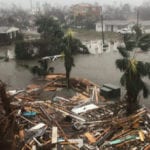 History
History  History
History  Health
Health 10 Everyday Activities That Secretly Alter Consciousness
 History
History Top 10 Historical Disasters Caused by Someone Calling in Sick
 Animals
Animals 10 New Shark Secrets That Recently Dropped
 Movies and TV
Movies and TV 10 Forgotten Realities of Early Live Television Broadcasts
 Technology
Technology 10 Stopgap Technologies That Became Industry Standards
 Weird Stuff
Weird Stuff 10 Wild Facts About Taxidermy That You Probably Didn’t Know
 Travel
Travel 10 Beautiful Travel Destinations (That Will Kill You)
 Miscellaneous
Miscellaneous 10 Modern Marriage Rituals Born from Corporate Branding
 Weird Stuff
Weird Stuff Ten Bizarre Visions of 2026 from Fiction
 History
History 10 “Modern” Problems with Surprising Historical Analogs
 Health
Health 10 Everyday Activities That Secretly Alter Consciousness
 History
History Top 10 Historical Disasters Caused by Someone Calling in Sick
Who's Behind Listverse?

Jamie Frater
Head Editor
Jamie founded Listverse due to an insatiable desire to share fascinating, obscure, and bizarre facts. He has been a guest speaker on numerous national radio and television stations and is a five time published author.
More About Us Animals
Animals 10 New Shark Secrets That Recently Dropped
 Movies and TV
Movies and TV 10 Forgotten Realities of Early Live Television Broadcasts
 Technology
Technology 10 Stopgap Technologies That Became Industry Standards
 Weird Stuff
Weird Stuff 10 Wild Facts About Taxidermy That You Probably Didn’t Know
 Travel
Travel 10 Beautiful Travel Destinations (That Will Kill You)
 Miscellaneous
Miscellaneous 10 Modern Marriage Rituals Born from Corporate Branding
 Weird Stuff
Weird Stuff Ten Bizarre Visions of 2026 from Fiction
10 Mind-Blowing Things That Happened In 2018
Keeping up with the news is hard. So hard, in fact, that we spent the whole of 2018 rounding up the most mind-blowing stories for you each and every week, because we’re nice like that. With New Year’s approaching, now feels like the perfect time to look back on 2018 in news and pick the ten stories this column considered the most important of all.
As with any of our roundups, choosing what to keep in and what to exclude was a real chore, and inevitably, some important stories got left out. Honorable mentions this year include Brazil getting its first hard-right leader since the dictatorship ended, the detention of children on the US-Mexico border, Macedonia’s historic renaming referendum, and the thaw between mortal enemies Ethiopia and Eritrea. For the rest of you, here’s what the world’s been up to in 2018.
Alternatively, check out our 2017 roundup here.
10 Brett Kavanaugh’s Supreme Court Nomination Got Real Ugly

No sooner had Donald Trump entered the White House than he was called upon to nominate his first Supreme Court candidate. Neil Gorsuch was confirmed in April 2017, in a vote that divided along party lines but wasn’t particularly rancorous.
The same could not be said of his second pick, Brett Kavanaugh.
Nominated to replace retiring swing vote Anthony Kennedy, Kavanaugh initially looked like another Gorsuch—reliably conservative but uncontroversial—until Professor Christine Blasey Ford suddenly came forward to accuse him of sexually assaulting her at a party when they were teenagers. With the shockwaves of #MeToo still being felt, the nomination process became a battleground for America’s identity.
Our column from the time shows just how ugly things got. Hearings were called, FBI investigations launched, and a woman’s life and a man’s career hung in the balance. Although Kavanaugh was narrowly confirmed, it was the ugliest nomination battle in a generation and one that laid bare the rifts in the nation’s soul.
9 Armenia’s Velvet Revolution Stunned The World
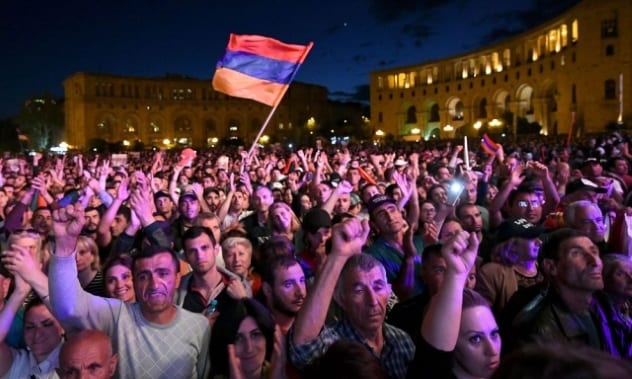
The first time this column mentioned the protests gripping Armenia, it was April 21, and they’d been in full swing for about a week. At the time, we simply explained what they were about (corrupt president Serzh Sargsyan had ended his constitutionally mandated two terms by transferring all the president’s powers to the prime minister’s office and then making himself prime minister), noted that they were big, and suggested they probably wouldn’t lead to any significant change.
How wrong we were.
By the next week’s column, the whole of Armenia had exploded in peaceful revolt, with a third of the country demonstrating. The week after, Sargsyan resigned. Two weeks after that, the entire government fell, without a single shot fired. It was a bloodless revolution.
The main beneficiary was Nikol Pashinyan, who’d started the protests as a single angry man and ended them as prime minister. In December, he called a snap election that saw the old party of Sargsyan ejected from parliament and a swathe of new, pro-revolution ministers come in. It was a stunning change in a country that had so long been under the authoritarian thumb of Sargsyan and a much-needed optimistic story.
8 The US Was Paralyzed By Mass Shootings

The end of 2017 was dominated by two of the worst mass shootings the US has seen, at Las Vegas and Sutherland Springs, Texas. But it was during 2018 that the constant drip of gun rampages finally pushed the nation to breaking point.
The biggest came early in the year, when former student Nikolas Cruz opened fire at his old school in Parkland, Florida, killing 17 students and wounding another 17. It was the worst school shooting the US had seen since Sandy Hook, but it wasn’t the last. In May, another shooting hit Santa Fe High in Texas, leaving ten dead. While no more major school shootings followed, a rampage at Thousand Oaks, California, in November killed 13, while a racist gun attack on a Pittsburgh synagogue left 11 dead. The latter had the awful distinction of being the worst anti-Semitic attack in US history.
Overall, nearly 70 people died in mass shootings in the US in 2018.
However, 2018 also saw many Americans reach breaking point where gun violence was concerned. In late March, the Parkland student-led March for Our Lives became the biggest youth protests the US had seen since the Vietnam War.
7 Russia Killed A British Citizen With A WMD (And The World Just Watched)
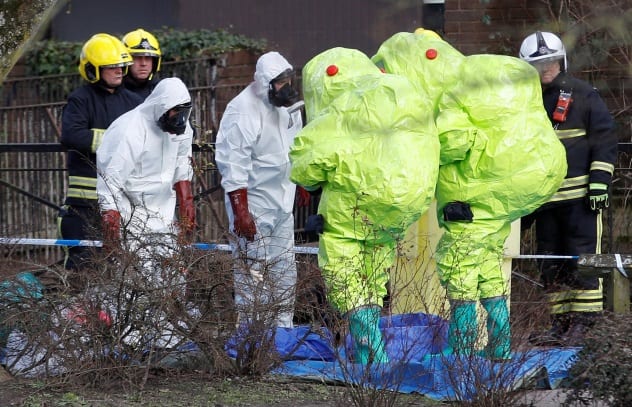
2018 was a good year for Russia. The World Cup saw the national team ride a wave of hope further than they could have anticipated and led to a general feeling of euphoria among ordinary Russians. But even as many celebrated, the Kremlin was up to some seriously dark stuff, like using a weapon of mass destruction to try and kill dissidents on British soil.
In March, ex-spy Sergei Skripal and his daughter Yulia were found close to death on a bench in the city of Salisbury. It soon came to light that they’d been poisoned by the nerve agent Novichok on the orders of Vladimir Putin.
Novichok is a deadly weapon, and its presence in Salisbury led to some hideous problems. The police officer who responded to the Skripals himself nearly died. But the real tragedy came later. On June 30, UK citizen Dawn Sturgess accidentally came into contact with some Novichok carelessly left in Salisbury by the assassins. She died on July 8, the first UK civilian to be killed by a nerve agent in the country’s history.
Although Putin would be loudly condemned by many, very few concrete measures were taken against Russia following the brazen attack.
6 The Iran Nuclear Deal Was Dramatically Ripped Up
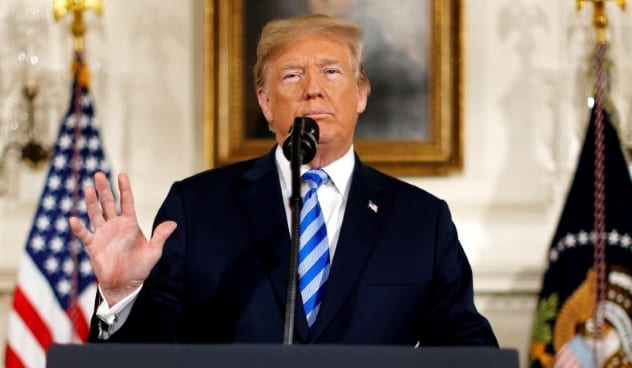
On July 14, 2015, the five permanent members of the UN security council, plus Germany, signed an historic deal with Iran. Known as the Joint Comprehensive Plan of Action, it aimed to reduce Iran’s ability to develop a nuclear bomb. One of President Obama’s signature foreign policy achievements, it looked set to reshape the Middle East by opening Iran to Western businesses.
Then came May 8, 2018. On that day, President Trump announced that he was withdrawing the US from the deal. This was followed by heavy sanctions leveled at Tehran. Although the EU, Russia, and China scrambled to keep the deal alive, it was effectively dead.
The deal had long been controversial, with some saying it did too little to halt Iran’s activities in other areas of aggression and weapons production. Still, its abrupt termination was a sight to behold. Not for the first time, America’s allies found themselves madly trying to stay afloat as President Trump yanked the boat out from under them. Where the deal’s demise will leave us in 2019 remains to be seen.
5 Jamal Khashoggi’s Murder Shocked The World
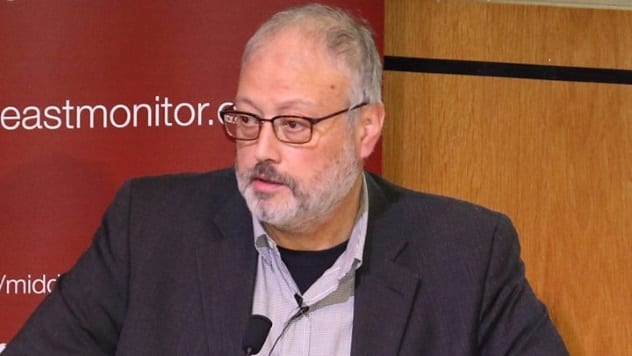
It was the stuff of pulp thriller writing. On October 2, Washington Post journalist and exiled Saudi dissident Jamal Khashoggi walked into the Saudi consulate in Istanbul, never to be seen again. As his wife alerted the media, it became clear that the writer had been murdered in one of the most brazen conspiracies ever seen. Tortured to death and dismembered by Saudi intelligence services, his body parts dumped around Istanbul, Khashoggi’s murder wound up destabilizing the entire Middle East.
As the days dragged on after his disappearance, more and more sordid details began to emerge. A Khashoggi lookalike was captured on CCTV leaving the consulate. An audiotape of the journalist’s death screams surfaced. When the order was alleged to have come from Saudi crown prince Mohammed bin Salman (MBS for short), MBS staged a ghoulish photo op, shaking hands with Khashoggi’s Saudi Arabia-based son.
The effects of the murder are still being felt. Recep Erdogan of Turkey—himself no stranger to silencing critical journalists—made hay with the accusations. In the States, it led to a strong backlash from the Republican Party against the MBS-supporting Trump. Khashoggi may be dead, but his influence still lingers.
4 Facebook’s Woes Put Data Privacy In The Spotlight
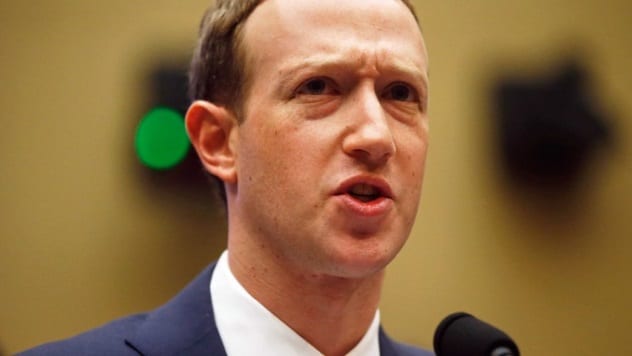
Has there ever been anyone to testify before Congress who sounds more like a casual sociopath? Back in April, Mark Zuckerberg wound up on Capitol Hill, answering questions on his company’s transgressions with all the charm of Patrick Bateman wondering how your head will look in his fridge. But while Congress mostly treated Zuckerberg with kid gloves, his testimony was still sparked by a massive scandal that affects us all.
On March 17, 2018, a joint expose by The New York Times, The Guardian, and Britain’s Channel 4 News dropped like a bombshell. It revealed Facebook had allowed a firm known as Cambridge Analytica to harvest data on 80 million users, data it had then used to try to swing votes in the US, UK, and elsewhere.
The knock-on effects of these revelations have been momentous, with Facebook ending the year lurching from scandal to scandal while the rest of us start to wake up to how our data is exploited. As the year draws to a close, there have even been rumors of Zuckerberg being subpoenaed. Is Facebook soon to go the way of MySpace?
3 Brexit Became An Utter Omnishambles

Omnishambles. According to the Oxford English Dictionary : “a situation that has been comprehensively mismanaged, characterized by a string of blunders and miscalculations.” If any one word could sum up Brexit this year, it’s that.
It started slowly. As the year began, Brexit barely featured in our weekly roundups. Then came summer and the revelation of May’s Chequers Plan—a road map for leaving the EU that managed to combine all the negatives of EU membership with all the negatives of leaving the bloc. Although the British government held it together a little longer, the writing was on the wall. As the deadline for voting on the plan approached, the last traces of sanity in Westminster evaporated.
Here’s a quick recap. In the last two months, we’ve had two coup attempts against May, including a no-confidence motion that resulted in one of the most Pyrrhic victories of all time. The government has suffered the first run of three defeats in a row since the 1970s. It has been found in contempt of Parliament for the first time in British history. The vote on the withdrawal agreement has been kicked into January because it’s clear that it will fail—raising the unedifying prospects of either a hard Brexit, or no Brexit at all.
Watching Theresa May and the Conservative Party flailing these last weeks has been like watching a group of clowns act out some bizarre mime in which they keep slipping on banana skins while simultaneously shooting themselves through the foot. It’s less than 100 days until Brexit now, and anything could happen. Expect to see this story in our 2019 roundup.
2 North Korea Came In From The Cold
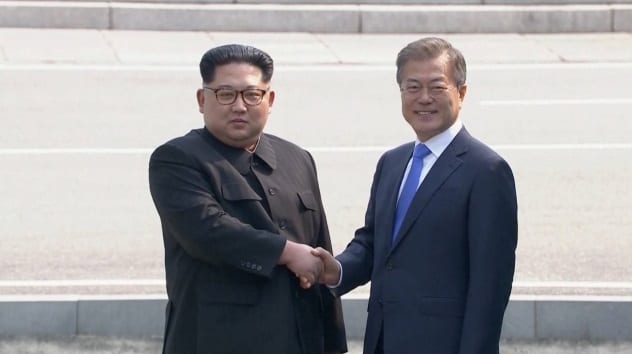
Last year’s roundup ended with us sounding an ominous note about North Korea. In the number-one spot, we cited the then-ongoing crisis on the Korean peninsula, suggesting 2018 could be the year war erupted. We weren’t the only ones. All through 2017, the DPRK had tested ever more powerful nuclear weapons, alongside missiles capable of hitting the continental US. Pyongyang had threatened to bomb Guam, and confrontation seemed all but inevitable.
Which just goes to show how much can change in one year. As we slip into the final days of 2018, North Korea hasn’t just receded as a threat. In a remarkable turn of events, Kim Jong Un has seemingly brought his country in from the cold.
It started with North and South Korea agreeing to field a joint team at the winter Olympics. Somehow, this turned into agreements for more mutual cooperation. Then President Trump got in on the act, saying he’d be open to meeting Kim in person to discuss the situation. By summer, the impossible had happened. Kim and Trump and South Korea’s President Moon had all met at a summit in Singapore. Suddenly, the North was promising to dismantle its nuclear stockpiles and start playing nice. The change was so sudden that it practically gave the world whiplash.
Since then, it’s mostly been good news from North Korea. The DPRK has returned US war dead, Pyongyang and Seoul have found new ways to cooperate, and the Hermit Kingdom appears on the cusp of opening up. Considering where we were last year, this is incredible. Hopefully, this is the beginning of a lasting thaw.
1 We Discovered The Sickening Scale Of Abuse In Pennsylvania’s Catholic Churches
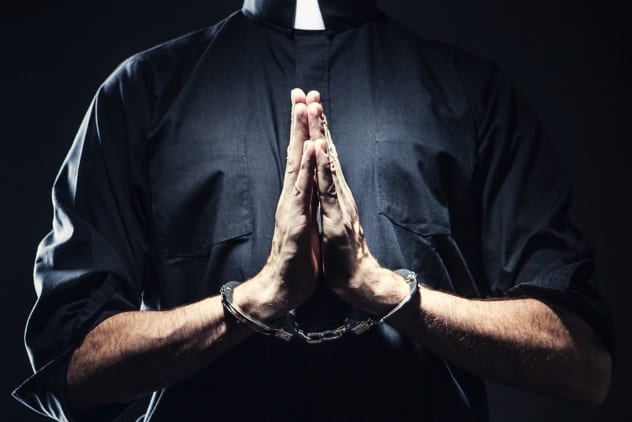
In mid-August, the long-awaited report into sexual abuse in Pennsylvania’s Catholic churches finally landed. To call the contents horrific would be an understatement. It had been clear since the inquiry was launched by Pennsylvania attorney general Josh Shapiro in 2016 that awful things would be uncovered, but nobody was prepared for just how awful. As our column at the time said:
Over 300 abusers. Over 1,000 victims. Those were the shocking takeaway figures from Tuesday’s official report into child abuse in Pennsylvania’s Roman Catholic churches.
Across 70 years, priests repeatedly raped children with impunity, leaving shattered young lives and scarred families in their wake. Of Pennsylvania’s eight dioceses, six actively failed to keep kids safe from pedophile priests. It’s one of the worst abuse scandals the US has ever seen.
These figures were just the tip of the iceberg. There were reports on priests raping children in hospitals, of making young boys perform oral sex on them. But the worst came at the report’s conclusion. Of the 301 named abusers, only two were arrested. The rest were dead or had escaped the statute of limitations. The statute of limitations for these stomach-churning crimes? A mere five years.
Of all the stories we reported on in 2018, this was by far the most upsetting, the one most likely to make you question the basic goodness of humanity. Sadly, it may have also been the most necessary to discuss. A vast conspiracy had allowed pedophiles in the Church to enjoy seven decades of impunity, and no one in power had seemed to care.
Thankfully, the Justice Department has now launched a probe into the local Church under the Racketeering Influenced and Corrupt Organizations statute, typically used in mob cases. We can only hope that in 2019, justice will finally be done.
Missed the news lately? Catch up on more mind-blowing events from December 21, 2018, and December 14, 2018.
